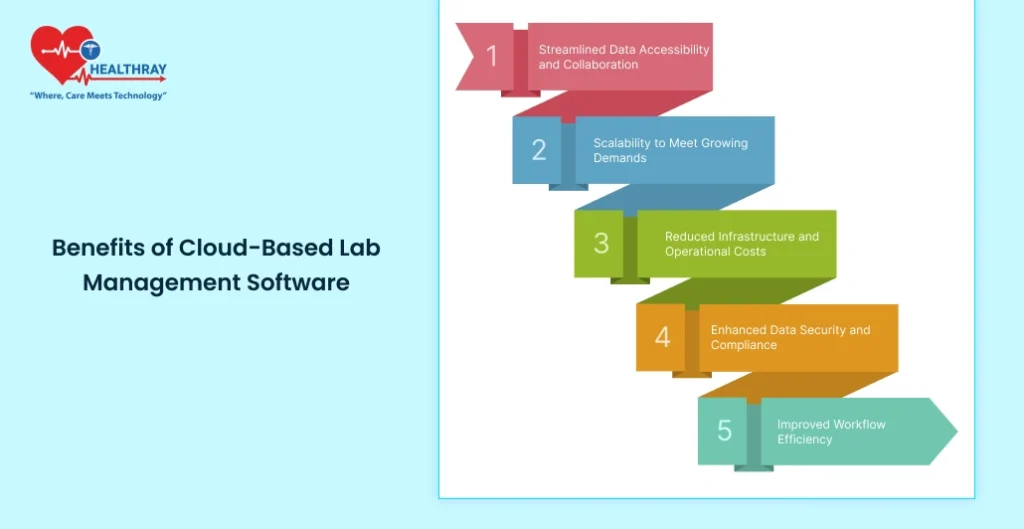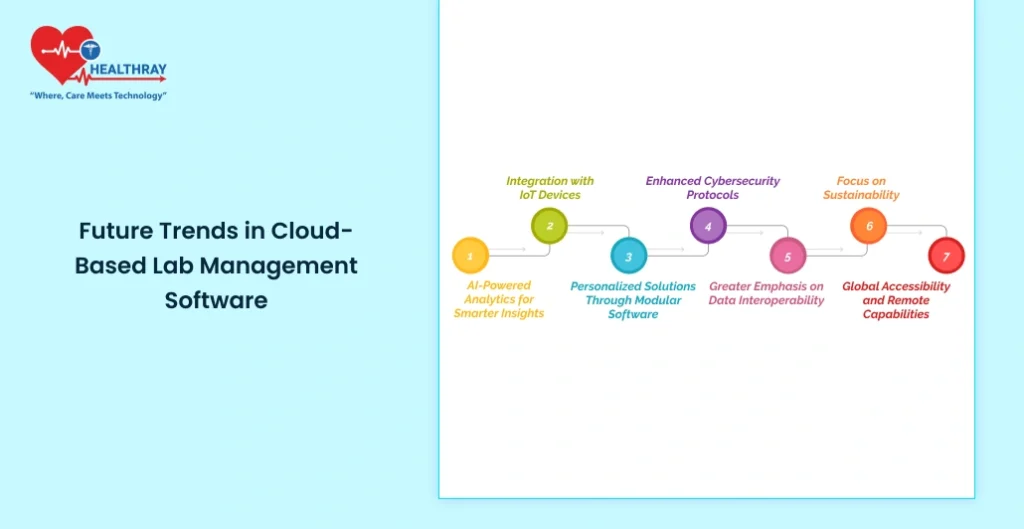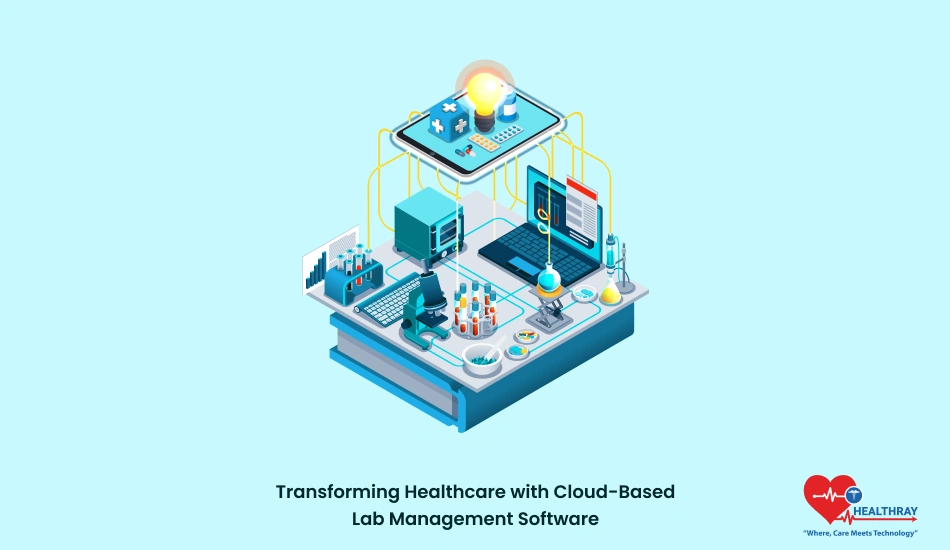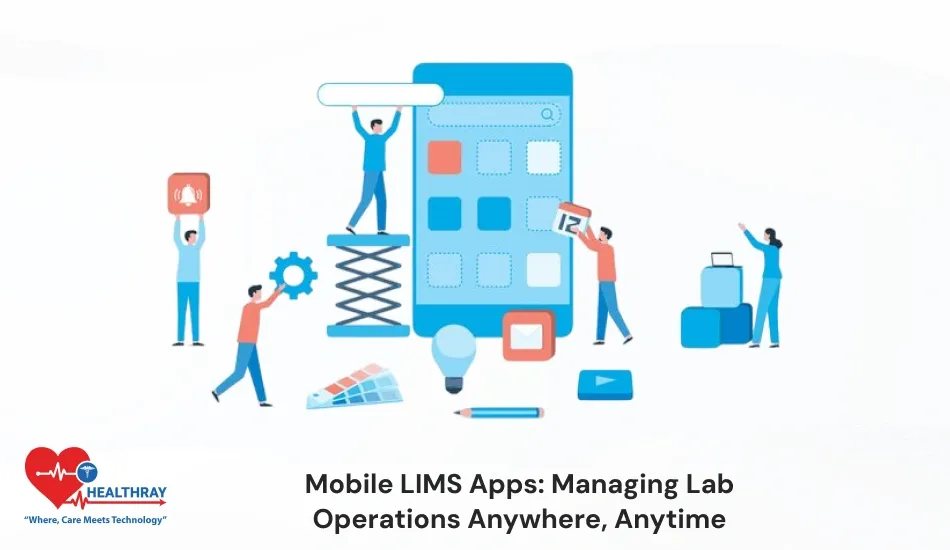Healthcare labs are the backbone of diagnostics and treatment plans, yet managing them can be a juggling act. From handling patient data to streamlining workflows, the challenges are real. This is where cloud-based lab management software steps in to transform the game.
The integration of the cloud-based Laboratory Information Management Systems (LIMS) has many benefits for the healthcare facilities wherein the information can be accessed in a non-real-time approach without concerning outdated systems as well as security risks, to name a few, while using the cloud service. Scaling and flexibility on demand meet the growing needs of advanced health facilities.
We go on to explore the benefits of adopting cloud-based lab management software, how to seamlessly and smoothly implement them, and what the future holds for healthcare labs in this article. This is an informative read for healthcare administrators who look for efficiency improvements, for lab managers who are focused on accuracy, and developers looking to innovate within the space.
Benefits of Cloud-Based Lab Management Software

Streamlined Data Accessibility and Collaboration
The largest benefit of using cloud-based lab management software is its simplification of access to data. The patient record, test result, and operational reports of lab managers and healthcare administrators can be retrieved anytime and from anywhere. This helps in teamwork, particularly if several facilities are involved.
Scalability to Meet Growing Demands
Healthcare labs often need to scale up because of an increase in volume of patients or new service lines. Conventional systems can make it very difficult to scale operations. Cloud-based solutions grow along with your needs, hence scaling up to include more new data, new users, or new functionalities without overhauling the system.
Reduced Infrastructure and Operational Costs
On-premise lab management software requires a huge amount of investment in servers, IT maintenance, and upgrades. Cloud-based alternatives eliminate the costs, offering a subscription model that covers updates and support. This frees labs to redirect funds to more critical areas.
Enhanced Data Security and Compliance
With sensitive patient data up for grabs, security should not be negotiable. Cloud providers deliver advanced encryption, regular security updates, and compliance with health standards, such as HIPAA, which ensures the protection of data from breaches as well as compliance with regulatory requirements.
Improved Workflow Efficiency
Automating repetitive processes like test scheduling or reports helps reduce administrative burden to the staff, thus the turnaround time will be better, fewer errors, and efficient resource utilization.
Implementation Strategies for Cloud-Based Lab Management Software
Evaluate Your Current System
Before making the switch, conduct a thorough assessment of your existing lab management setup. Identify pain points like outdated workflows, limited scalability, or compliance gaps. This helps in understanding what features are a must-have in the new system.
Choose the Right Cloud Solution
Not all cloud-based lab management software is created equal. Look for a provider that offers customizable features, strong customer support, and a proven track record in the healthcare industry. Ensure the solution aligns with your lab’s specific needs and can integrate with any existing tools.
Plan the Transition
Cloud software transitions require good planning. Map the path for each process from migrating data to system testing. Cooperate with the IT department and the software supplier to prevent or minimize a service blackout.
Invest in Staff Training
The people who will use the system daily will determine whether the implementation is smooth. Hold training sessions for your team to familiarize them with the new platform. Provide resources like user manuals and ongoing support to address any questions or issues.
Test and Optimize
Carry out a pilot phase, including a small team or department before totally rolling out the software. The pilot phase will have its uses in pointing out problematic issues and correcting them ahead of full rollouts. Users’ recurrent feedback can also help adjust the system to achieve an ideal level of efficiency.
Ensure Data Security and Compliance
Ensure that the implementation software meets all regulatory needs during implementation. Engage the provider in collaboration toward encrypting data, accessing the system with proper control mechanisms, and adherence to HIPAA or GDPR if that is your industry.
Case Studies
Case Study 1: Improving Operational Efficiency in a Diagnostic Lab
A mid-sized diagnostic lab struggled with outdated software causing data lags frequently and delayed reporting. Transitioning to a cloud-based lab management system changed everything for them. Real-time data access resulted in a 30% reduction in turnaround time of test results and improved collaboration of the team.
Staff pointed out that the automation of routine tasks, such as tracking inventory and scheduling appointments, gave back precious time for the care of patients. This scalable solution also allowed the lab to expand its services to neighboring regions without any additional costs in infrastructure.
Case Study 2: Ensuring Compliance and Data Security in a Healthcare Network
A multi-location healthcare provider faced challenges maintaining consistent compliance and data security across its facilities. Adopting cloud-based lab management software solved this problem. Advanced encryption protocols and automated compliance checks ensured data integrity and regulatory adherence.
With centralized access to patient data, lab managers across locations collaborated more effectively. This improved service delivery and reduced operational errors by 40%. The provider now uses the system to conduct regular compliance audits with ease.
Case Study 3: Enhancing Patient Outcomes in a Specialized Testing Facility
The genetic testing lab adopted cloud-based management software in order to smooth out their complex workflows. This meant they could connect directly from the advanced testing equipment into the software, reducing many manual errors when entering data as well as making sure reports came back correctly.
Patients benefited from faster and more reliable test results, thereby improving overall satisfaction rates. The lab also used analytics tools provided by the software to identify trends, optimize processes, and make informed business decisions.
Future Trends in Cloud-Based Lab Management Software

AI-Powered Analytics for Smarter Insights
The keyword Lab Solutions Software is used, focusing attention on the role it is playing in cloud-based management of the lab by use of AI tools for examining large datasets, trends recognition, and outcome prediction in order to help lab managers make decisions and optimize resource utilizations with the aim to identify potential improvement areas.
Integration with IoT Devices
The Internet of Things (IoT) is set to play a larger role in healthcare labs. Cloud-based systems will integrate seamlessly with IoT-enabled lab equipment, allowing real-time monitoring and data collection. For example, IoT sensors can track equipment performance and send alerts when maintenance is needed, reducing downtime.
Personalized Solutions Through Modular Software
As healthcare labs grow more specialized, software providers are expected to offer modular solutions. Labs will be able to customize their platforms by selecting specific modules, such as reporting, inventory management, or compliance tracking. This approach provides flexibility while keeping costs manageable.
Enhanced Cybersecurity Protocols
With the increasing digitization of healthcare data, cybersecurity remains a top priority. The next generation of cloud-based lab management software will feature advanced encryption methods, multi-factor authentication, and AI-driven threat detection to ensure data safety.
Greater Emphasis on Data Interoperability
Interoperability between systems is becoming essential in healthcare. Cloud-based solutions will focus on enabling seamless data sharing between labs, hospitals, and other healthcare providers. This will improve coordination of care, reduce duplication of tests, and enhance patient outcomes.
Focus on Sustainability
As the healthcare sector embraces green initiatives, cloud-based systems will adopt energy-efficient data centers and sustainable practices. This shift not only reduces environmental impact but also aligns with the growing demand for eco-friendly solutions in healthcare.
Global Accessibility and Remote Capabilities
Cloud technology is breaking down geographical barriers. Future lab management systems will prioritize remote access, allowing healthcare professionals to manage operations or review data from anywhere in the world. This is particularly beneficial for global healthcare networks or labs in remote locations.
Conclusion
Cloud-based lab management software is no longer a luxury but a necessity for the modern healthcare lab. It meets the needs of accessibility, efficiency, and scalability in workflows, while saving costs and maintaining compliance. In this context, healthcare administrators and lab managers can be free to do what really matters: ensuring accurate and timely diagnostics.
The benefits are clear: faster data access, streamlined operations, and a future-proof approach to lHospital Management System. Whether you’re managing a single facility or a network of labs, the switch to cloud-based solutions could be the transformative step your organization needs.
Ready to embrace the future of healthcare labs? It’s easier than you think with the right tools and strategies. Explore the possibilities, empower your team, and lead your lab into a new era of innovation.




